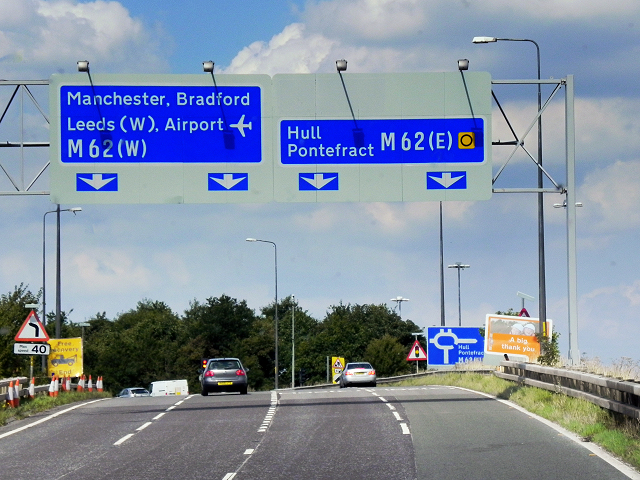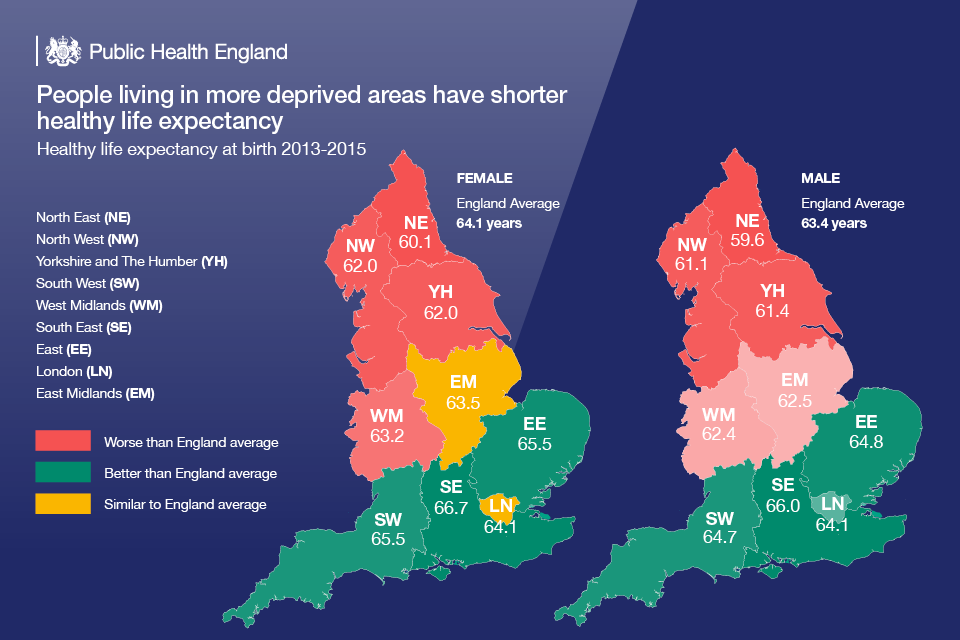Colleagues from across the north will be coming together this week for our annual ‘Due North’ conference.
Public health teams and others, from local government, the NHS, business, voluntary and academic sectors, from across the north of England will be talking about work locally, regionally and nationally to generate economic growth that’s inclusive – something at the heart of preventative public health.
This has become a yearly temperature check, starting back in February 2014 when around 150 of us met in the ‘Strictly’-styled Tower Ballroom in Blackpool with a stirring introduction on that iconic Wurlitzer organ!
Public health had moved back into local government and PHE and new NHS structures were being formed.
We agreed to work together to look at fresh ways that this new working environment gave us to address an old problem: health inequalities.
The north-south divide profile was high; the impact of austerity becoming tangible. PHE commissioned Margaret Whitehead and a panel of leaders and experts from the north to assess the evidence on inequalities in the north and propose actions for this new context.
Their landmark publication, Due North, was published that September 2014, and the ideas, energy and stimulus it provided continues, through all manner of conversations, conferences and workshops, programmes, strategies, policy development and networks, such as the Equal North academic network.
Dame Margaret’s four overarching recommendations - to strengthen the economies in the north, to work with devolution, to focus on early years and to boost the roles of statutory organisations in addressing inequalities - are as relevant now as then.
Despite the focus, there remains a clear north-south divide in the health of the population in England, with the north significantly worse off.
It’s both cause and consequence of multiple dimensions of inequality: big things like investment in infrastructure and macro-economic policy, and in income, work, housing, education and skills, our relationships with alcohol, tobacco and food, the environment we live in, how secure we feel, our social connectedness, in opportunities and the choices we have.
The health gap remains persistent - some argue it has widened. In spite of sterling effort, addressing health inequalities is an uphill struggle. So why should we continue?
Well, for me and many who have worked with this agenda this current time feels opportune. For a start, the last two years feels like this is a time when it hasn't seemed like ‘business as usual’.
We have a prime minister who, on taking up her job, talked of addressing ‘the nine year gap’ in life expectancy (it is also, of course, a gap of 19 years if we look at healthy life expectancy).
The Government has repeated this message and the need to address the ‘burning injustice’ of inequalities.
Then there is Brexit. The referendum vote was not just to leave the EU- but seen as a chance seized on by many to express their frustration that the economic model was leaving them behind.
The green paper for the imminent national Industrial Strategy was explicit that the scale of economic disparities across the country limited growth and opportunities.
In May, six new elected mayors joined the Mayor of London as a new cadre of elected leaders with new powers covering larger city and hinterland populations - around 20% of England’s population.
Their manifestos and subsequent plans all say they want to address health, wellbeing and inequalities with new inclusive growth policies and a focus on wellbeing.
And there are other types of devolution opportunities emerging, in local government and in the NHS, through strategic transformation partnerships and accountable care approaches.
Locally, there is an evolving movement of community ‘anchors’ growing from small voluntary projects into community interest companies and income generating organisations, social entrepreneurs, an increasing desire to build on the assets already in communities (I blogged about this recently).
Too often we are reminded, sometimes sadly, sometimes shockingly, that inequalities - differences in poverty, power and resources (to quote Due North) - have consequences for us all.
Interested in this topic? Read our recent blog 'Supporting local action on health inequalities'
Image credit: Sliproad from M1 to M62 at Lofthouse Interchange
cc-by-sa/2.0 - © David Dixon


